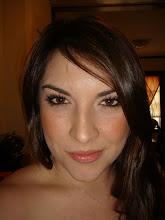I spent an evening reading from my textbook on media literacy and the teachings of. I love that media studies is finally getting at least some of the recognition it deserves. I was reading along and having these “ah-ha,” “yes that’s awesome,” and “I love that” kind of moments about how one can actually justify media studies in curriculum, the benefits and importance of teacher education in media literacy, the success of such studies in the curriculum of other countries and cultures, and the application to, and impact on real life media studies has.
All was great until I came across the opinion of the school board member from Eden Prairie. This person seem a bit ignorant when it comes to “good” teachers, as well as the importance of media literacy. Whatever “good” teachers means, but in my opinion, a good teacher is one that can successfully integrate media of all or any forms into the daily curriculum. Umm..we as a society are constantly immersed in television, the Internet, newspapers etc. There simply can be no denying this, nor can we ignore it. The fact that this school board member claims showing movies in school is an example of low skill level is ignorant. Granted there are plenty of teachers out there whom do just that in order to escape teaching or I don’t even know what else, not all teachers whom show films do so without some kind of educational intent. I think if we did place more emphasis on media literacy, the view on it may shift to a more positive one.
I read in the text that most people spend 2/3 of their day involved in some kind of “televisorphonernetting,” and students generally spend about 50 minutes doing homework. Guess what, I currently am doing both of those things. What a way to successfully combine the two since I was going to “televisorphonernet” anyhow. It turns out that my experiences in doing so help develop my personal range on digital literacies and social interactions (true story), and I’m thinking critically and learning folks (no joke)!
Media studies develops a new form of communication, and I’m not going to lie, I totally agree that this helps form my identity while it offers me a new way to learn things. This is the first blog I have ever set up. I had to learn how to do that, all while I was taking in the textual information from my book, and then I got to combine the two. Nerdy, but that’s pretty cool yeah? I’m slightly embarrassed, but others will read this and I may even get to chat with them about it. It’s an interactive thing. Think of how many people sit on their sofas alone and surf the Internet or whatnot. It’s a rather passive thing and I totally feel lazy doing it. Having a blog alone makes me feel like I’m doing something a little more than flattening my couch cushions, straining my already poor eyesight and exacerbating my carpal tunnel problem. I truly think bringing blogging into the classroom would be an amazing way to get students to interact with one another, exchange ideas and develop new skills. Like the text says, if we are so concerned about developing these “basic” skills, why not meet students half way and do so by reaching out to them with something(s) they are interested in?
As educators we should take what we have to work with and build on those things instead of insisting on educating the way we think we should. We want to engage students right? We should teach them the skills needed to do the things they want to do and are going to do anyway, and it automatically teaches them the skills we think they should have. Tricky. By allowing students to learn how use multimedia and communicate in multimodal ways, they will enjoy what they are doing and learning, and they will use critical thinking skills to judge the quality of and recognize the different aspects of media, all while understanding the important role media plays in our society.
There is such a social and cultural influence on and of media in our daily lives, and thus it tends to represent and impact our lives whether we want it to or not, and whether it is positive or negative. If one understands these things, they can make more informed decisions about, change their perceptions of, and “see” the construction of the world via the media. In frankness, the media gives us a pretty good look (accurate or not) at how we see ourselves, how others see “us,” how we see “others”, and how we should be seen. It’s absolutely essential to have the skills to recognize these things. Perhaps we as educators could umm..do just that? It would be cool to show a student how to “see” the different meanings presented to us through media, how we impact media and how it impacts us.
Media can empower people, those whom may not have a voice elsewhere. This can be both positive and negative, but the ability to see that distinction is even more powerful in my opinion. I believe media studies are fantastic, and the opportunity to teach critical thinking about society, beliefs and attitudes through such a topic is invaluable. Technology is upon us and is ever changing and developing. Let’s take advantage of it.
Subscribe to:
Post Comments (Atom)

No comments:
Post a Comment